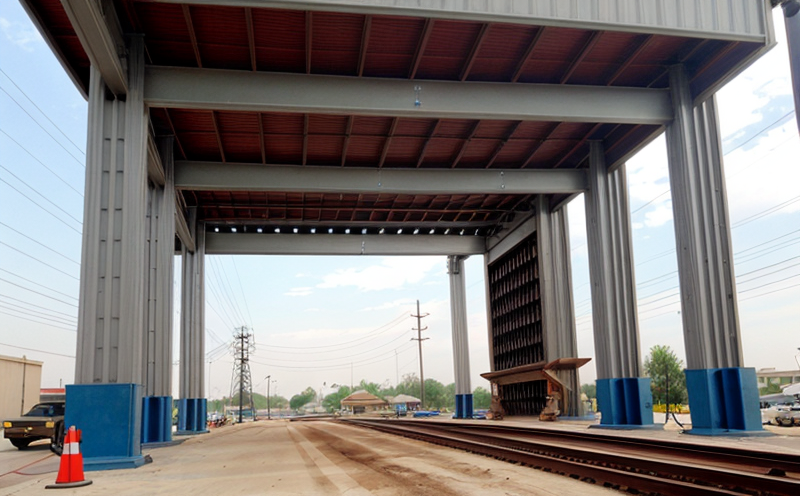EN 6040 High Temperature Tensile Testing of Aircraft Materials
The EN 6040 standard specifies methods for determining tensile properties at elevated temperatures of materials used in aircraft structures. This testing is critical to ensure that aerospace components remain functional and safe under extreme conditions, which can range from high-altitude cold environments to hot engine compartments.
High temperature tensile testing is a cornerstone of aircraft material evaluation because it simulates the operational stresses experienced by aircraft parts during service life. The test involves subjecting specimens cut from actual materials used in aircraft components, such as titanium alloys, composites, and aluminum, to controlled heating followed by mechanical loading until failure.
The purpose of this testing is not only to identify the maximum load a material can withstand but also to understand its behavior at elevated temperatures. This information helps engineers design safer, more reliable aircraft structures that can operate efficiently in various environmental conditions without compromising safety or performance.
The test procedure begins with selecting appropriate specimens based on the intended use of the final product. Once cut and prepared, these samples are subjected to a controlled heating process in an oven or furnace until reaching the specified temperature. After achieving thermal stability, the sample is then tested using a tensile testing machine designed for high-temperature applications.
Instrumentation plays a crucial role in this type of test. High-precision load cells and displacement sensors are used to measure forces applied during loading and the resulting elongations or deformations. Specialized grips ensure secure clamping without introducing additional stresses, which could skew results.
Data collected from these tests includes not only the ultimate tensile strength but also yield strength, elongation at break, and reduction in area. These parameters are essential for assessing how a material behaves under stress over time, especially when exposed to elevated temperatures that might occur during service life.
Acceptance criteria specified by EN 6040 vary depending on the specific application of the tested material but typically include minimum values for tensile strength and elongation. Compliance with these standards ensures materials meet stringent safety requirements set forth by aviation authorities worldwide, such as the Federal Aviation Administration (FAA) or European Union Aviation Safety Agency (EASA).
Understanding the behavior of aircraft materials under high temperatures is vital not just for structural integrity but also for optimizing designs that balance weight savings with durability. By adhering to EN 6040 and similar standards, manufacturers can ensure their products meet rigorous performance expectations while minimizing risks associated with unexpected failures.
Why It Matters
The integrity of aircraft structures is paramount given the severe environmental conditions they must endure during flight. High temperature tensile testing provides critical insights into how materials behave under stress at elevated temperatures, ensuring that parts will perform reliably throughout their lifecycle.
- Ensures safety and compliance with aviation regulations
- Supports the development of safer aircraft structures
- Aids in optimizing material selection for specific applications
- Provides data necessary for long-term maintenance planning
By accurately measuring tensile properties at elevated temperatures, this testing helps prevent catastrophic failures that could lead to accidents. It also supports continuous improvement in aerospace design by providing feedback on the performance of new materials and manufacturing techniques.
Eurolab Advantages
At Eurolab, we pride ourselves on delivering high-quality services that exceed industry expectations. With our state-of-the-art facilities and experienced staff, we offer comprehensive EN 6040 testing tailored to meet the needs of the aerospace sector.
- Comprehensive suite of testing capabilities
- Accurate and reliable results using advanced equipment
- Dedicated team with expertise in aviation materials
- Prompt turnaround times for your critical projects
We stay at the forefront of technological advancements, ensuring that our methods comply with all relevant international standards including EN 6040. Our commitment to precision and reliability translates into trustworthiness and credibility within the industry.
Why Choose This Test
- To ensure compliance with aviation safety regulations
- To validate material performance under realistic conditions
- To support research and development efforts for improved design
- To identify potential weaknesses in existing materials or processes
This testing is essential not only because it helps prevent accidents but also because it plays a key role in advancing the state of the art in aerospace engineering. By understanding how different materials respond to extreme temperatures, we can make informed decisions that lead to safer and more efficient aircraft.





